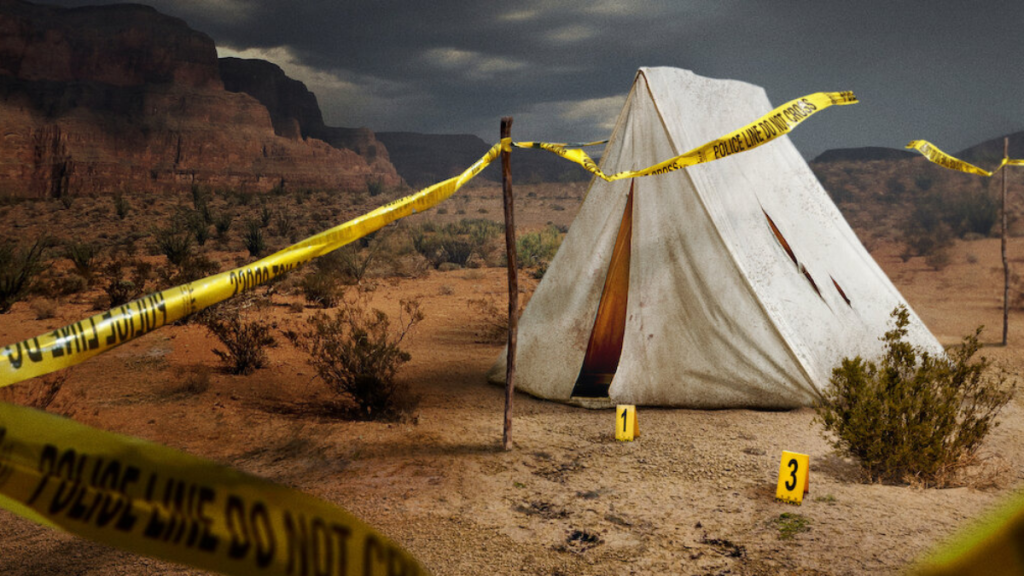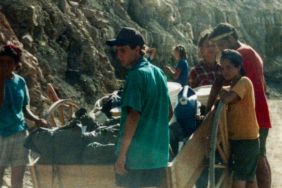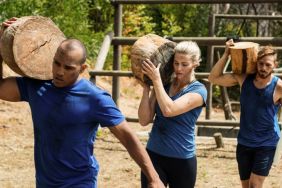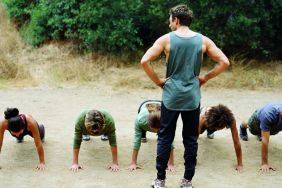Netflix’s latest documentary series, Hell Camp: Teen Nightmare, looks into Steve Cartisano’s Challenger Foundation. The docuseries is a tell-all about the Utah-based wilderness therapy camp that garnered notoriety for its extreme measures. The 63-day program meant for “out of control” troubled teens promised to “wear kids down until they’re good again” for $15,900.
According to the Radio Times, Cartisano established the foundation in 1998. However, the truth about the adverse procedures at the therapy camp only surfaced after 16-year-old Kristen Chase’s tragic death. An autopsy revealed that she died of heat stroke while there in the summer of 1990.
The Challenger Foundation, as well as Cartisano, found themselves involved in multiple scandals and lawsuits. The program eventually shut down after Cartisano faced charges in connection with Chase’s death, along with several counts of child abuse.
Directed by Liza Williams, Hell Camp: Teen Nightmare premiered on Netflix on December 27, 2023. The documentary series also features first-hand accounts from those who attended the camp.
Hell Camp: Teen Nightmare: Was Steve Cartisano convicted of Kristen Chase’s death?
Desert News confirmed that Kristen Chase died of a heat stroke during a hiking expedition when she was at the Challenger Foundation. The incident occurred on June 26, 1990. Following the 16-year-old’s demise, the therapy camp’s founder, Steve Cartisano, faced a negligent homicide charge, among several other counts of child abuse. However, in 1992, the case against Cartisano ended with his acquittal of all criminal charges in Chase’s death, as per High Country News.
The lawsuit against Cartisano and the Challenger Foundation stated, “Kristen Chase was not an athletic child. She had lived essentially at sea level with her mother for years. Her medical history, forwarded to Challenger by her mother, indicated…that Kristen suffered from bouts of coughing up blood, stomach pain, urinary burning and frequency, difficulty running, menstrual difficulty, and a knee injury.”
Chase participated in the camp’s strenuous activities at the 6,000-foot elevation in extreme heat against her will. The suit mentioned that at the time, Chase was upset, frightened, and ill. However, she forcibly participated in “four-to five-mile hikes each day in temperatures exceeding 95 degrees.” Desert News reported that the day before she died, the teen fell several times on one of the hikes. She even experienced knee pain and showed symptoms of heat exhaustion.
The Challenger officials forced the 16-year-old to participate in another five-mile hike on June 26, 1990. She showed symptoms of heat exhaustion by late afternoon, with her condition worsening rapidly. Medical assistance reached Chase that evening around 6:15 pm when “she had already died of exertional heat stroke.”

Radio Times said Cartisano denied negligence in Chase’s death. He claimed that the girl had yet to enter the “impact” portion of the program. According to the camp’s brochures, the participants would take part in “five days and nights of physical and mental stress with a forced march, night hikes, and limited food and water.”
The outlet reported that a witness cited other such instances in the Hell Camp: Teen Nightmare trailer. The camp would put teenagers in grave conditions, leaving them emaciated. “They were dirty [and] you couldn’t even tell that they were kids.” A second witness claimed, “The doctor had counted over 80 scars, marks, and contusions.”
Dexerto revealed that Kristen Chase’s demise spawned national publicity and a slew of civil lawsuits against Steve Cartisano and his foundation. Cartisano settled all these suits outside court, as reported the Radio Times. He later tried to set up another program in Hawaii but was banned from operating any such facilities. Meanwhile, his corporation filed for bankruptcy and eventually shut down.
Hell Camp: Teen Nightmare is now streaming on Netflix.










